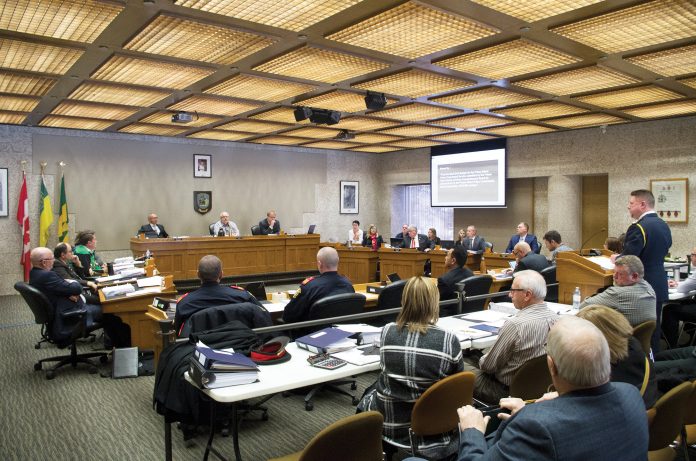
Prince Albert property owners are looking at a 3.9 per cent property tax increase according to the proposed 2019 municipal budget, however Mayor Greg Dionne said that number could go even higher.
In past years, property tax increases have hovered around the two per cent mark, with the 2018 tax increase coming in at 1.53 per cent. However, Dionne said that trend is likely going to change as the city grapples with tough financial conditions.
“I’m not happy with the 3.9 (per cent increase) but it will be in that range,” he said during an interview on Friday. “It might even be four or 4.5. We are going to look and see what we can do. This will be our last adjustment and then we are quite confident we can get back to the two (per cent increase).”
Provincial funding cuts are one of several factors forcing the city to be stingy with its funds, but there is some good news on that front. The provincial government has restored municipal surcharge payments, meaning the city can expect an extra $900,000 in revenue from SaskEnergy.
The city also expects to collect more than $400,000 in net revenue from the new City Impound Lot. That’s below what the city estimated it would collect, but Dionne said they’re still very happy with that performance.
Most of that money is slated to go towards infrastructure and street repair projects such as the $3.9 million Asphalts Milling, Recapping and Concrete Paving Program. Dionne said the infrastructure projects are popular with residents, so council is unlikely to stop funding them.
The city also has to make a one-time payment of $330,000 to the Municipal Employment Pension Plan (MEPP).
That leaves other capital projects, like the $1.13 million Central Avenue Revitalization plan, without any financial backing. Other major capital projects left unfunded in the proposed budget include a $100,000 playground replacement program, and a $1.5 million Marquis Road Widening Project. The latter would be funded from the $2.2 million Future Infrastructure Reserve if approved.
Dionne said the city is currently waiting on several grant applications, meaning the status of any capital project could change if the federal or provincial governments step in to help. That’s especially true with the Central Avenue Revitalization plan, which Dionne said has to be done soon due to the age of the infrastructure.
“If the province or the feds come and say, okay, we’ll give you a third and a third and then you come up with a third (of funding), well then we’d go back to our budget and find (the money),” he said. “But today, without that commitment, they’re just not recommended, but they are ready to go. We’ve priced them. We know we have to do the work. We just won’t increase our debt unless we have partners.”
If the budget is approved as is, capital project spending will be $710,000 less in 2019 than it was this past year. A 3.9 per cent property tax increase would raise roughly $1.17 million in revenue.
Proposed budget calls for police budget increase
The size of Prince Albert’s police budget has been a topic of debate in council chambers over the past year and it could go up again in 2019.
The proposed 2019 budget would see the police department receive a small net increase in funding of $236,090. That amounts to a 1.4 per cent increase over 2018.
“We’re confident that that we can come in and it will be the lowest police budget submitted to council since I’ve been on it for 15 years,” Dionne said.
The biggest expense increase comes from salaries, wages and benefits, with fleet expenses coming in a distant second. Total expenses for the force rose by more than $1 million while revenues jumped by $570,530.
City on hook for carbon tax payments
The City of Prince Albert is looking at a $132,000 fee due to the federal carbon tax once it comes into effect on April 1, 2019.
Mayor Greg Dionne said he received the news during a provincial mayor’s conference in Regina last week.
“I’m just amazed. I’ve never been involved where one level of government continues to tax other levels of government at this rate. I’ve never had that experience before,” Dionne said. “I understand they’re having the debate with the province, because they won’t have a plan, and they’re imposing this on us.”
Prime Minister Justin Trudeau pledged more than $2 billion in carbon tax rebates on Oct. 23. Trudeau the rebate would give Canadians a moral and economic incentive to act.
Residents in Saskatchewan, Manitoba, Ontario and New Brunswick will pay a $20 per tonne carbon tax on fossil fuels unless they come up with a plan that meets federal standards.
The federal government has argued that 70 per cent of households will end up receiving more money than they pay.
“I couldn’t figure out how,” Dionne said. “Well now I figured out where they got the extra money from: my other pocket.”

